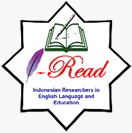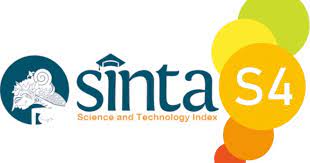English Language Teacher's Roles as Viewed by EFL Students
DOI:
https://doi.org/10.22219/englie.v3i2.22135Keywords:
Students' perception, Teachers' role, EFL contextAbstract
The teaching profession is complex and multifaceted. Beyond simply educating, teachers have many critical roles in the classroom. Recent research on teachers' roles has revealed crucial roles that differ by educational level. However, little is known about EFL students' perceptions of the functions of English language teachers, particularly at primary and secondary education levels. To fill the gap, this descriptive qualitative research reflects on EFL students' perception of English teachers' role in the classroom. The questionnaire, followed by a semi-structured interview to examine the data in more detail, was given to the first-grade junior high school students. After analyzing the data by using mixed-method, it was determined that students viewed the teachers' position as the resource to be the most important and the teachers' role as the organizer to be the least important. This result means that in most classroom activities, the students still depend on their teacher and see the teacher as the center of the class. This research can serve as a reflection for teachers to switch roles as organizers rather than be the students' sources. Hence the students can independently be responsible for their learning with teachers' support. Further research is recommended to investigate the teachers' role from students' and teachers' perspectives.
Downloads
References
Allen, V. F. (1983). Techniques in Teaching Vocabulary. Oxford University Press.
Anderson, P., & Osborn, T. (2022). Responding to Literature in the Foreign Language Classroom: Aesthetic Dimensions of Fluency. In Future of Foreign Language Education in the United States (pp. 1–209). Bergin & Garvey.
Arafat, S. (2005). The Roles of English Language Teachers as Perceived by Learners of English as a Foreign Language at An-Najah National University. J. Res. (H. Sc.), 19(2), 679–721.
Asher, J. (2009). Learning Another Language Through Actions. Sky Oaks Productions.
Atai, M. R., Babaii, E., & Gaskaree, B. L. (2018). A Narrative Study of In-service EAP Teachers’ Cognition on Language Teacher Role Identities Iranian Journal of Language Teaching Research. Iranian Journal of Language Teaching Research, 6(2), 97–115. http://ijltr.urmia.ac.ir
Carson, E., & Kashihara, H. (2012). Using the L1 in the L2 classroom: The students speak. The Language Teacher, 36(4), 41–53. https://jalt-publications.org/sites/default/files/pdf-article/36.4_art1.pdf
Chung, J. H. J., & Wei, X. (2020). Teach effectively or guide wisely? Discussing the application of wisdom approach to language teaching in Thai higher education. International Journal of Language Education, 4(3), 322–333. https://doi.org/10.26858/ijole.v4i3.15097
Datnow, A. (2020). The role of teachers in educational reform: A 20-year perspective. Journal of Educational Change, 21(3), 431–441. https://doi.org/10.1007/s10833-020-09372-5
Harmer, J. (2007). The Practice of English Language Teaching (fourth). Pearson Longman.
Morrison, J., Frost, J., Gotch, C., McDuffie, A. R., Austin, B., & French, B. (2020). Teachers’ Role in Students’ Learning at a Project-Based STEM High School: Implications for Teacher Education. International Journal of Science and Mathematics Education. https://doi.org/10.1007/s10763-020-10108-3
Nugroho, H. A. (2018). Efl teachers’ need of language proficiency professional development: When policy and practice collide. International Journal of Language Education, 2(2), 74–82. https://doi.org/10.26858/ijole.v2i2.6373
Nugroho, Ilmiani, D., & Rekha, A. (2020). EFL Teachers ’ Challenges and Insights of Online Teaching amidst Global Pandemic. 4(3), 277–291. https://doi.org/10.31002/metathesis.v4i3.3195
Panggalih, W. B. Cahyono. B. Y. (2020). EFL Students ’ Perception on the Use of “ Rhetorical Précis ” as a Summarizing Template. Indonesian Journal of English Language Teaching and Applied Linguistics, 5(1), 109–120.
Rianto, A. (2020). Blended learning application in higher education : EFL learners’ perceptions, problems, and suggestions. Indonesian Journal of English Language Teaching and Applied Linguistics, 5(1), 55–68.
Underhill, A. (1989). Process in humanistic education. ELT Journal, 43(4), 250–260. http://eltj.oxfordjournals.org/
Downloads
Published
How to Cite
Issue
Section
License
Copyright (c) 2022 Resna Suci Nurfalah, Emmas Pupah

This work is licensed under a Creative Commons Attribution-ShareAlike 4.0 International License.
Authors who publish with English Learning Innovation (englie) agree to the following terms:
- For all articles published in English Learning Innovation (englie), copyright is retained by the authors. Authors give permission to the publisher to announce the work with conditions. When the manuscript is accepted for publication, the authors agree to automatic transfer of the publishing right to the publisher.
- Authors retain copyright and grant the journal right of first publication with the work simultaneously licensed under a Creative Commons Attribution-ShareAlike 4.0 International License that allows others to share the work with an acknowledgement of the work's authorship and initial publication in this journal.
- Authors are able to enter into separate, additional contractual arrangements for the non-exclusive distribution of the journal's published version of the work (e.g., post it to an institutional repository or publish it in a book), with an acknowledgment of its initial publication in this journal.
- Authors are permitted and encouraged to post their work online (e.g., in institutional repositories or on their website) prior to and during the submission process, as it can lead to productive exchanges, as well as earlier and greater citation of published work (See The Effect of Open Access).
This work is licensed under a Creative Commons Attribution-ShareAlike 4.0 International License.
















1.png)












